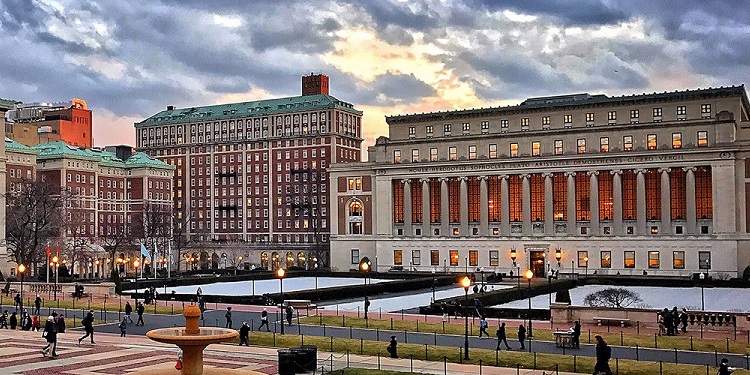Professor David Roper

Professor David Roper, Schaefer Research Fellow at Columbia University
Joint PhD with SUSTech
Professor David Roper is an internationally recognized expert in bacterial cell wall biosynthesis, antibiotic resistance, and cell division mechanisms. He has extensive experience in the analysis of molecular mechanisms and inhibition of enzymes involved in these processes and it was a productive collaboration with counterparts at Columbia University, New York that led to his application for a Schaefer Research Scholarship.
University of Columbia
Ranked 11th in the world (THE 2022), Columbia University, New York is a renowned research institution with a history reaching back to the mid-18th century. Comprising seventeen colleges and schools Columbia enrols in excess of 30,000 students each year. The Vagelos College of Physicians and Surgeons at Columbia is a world leading research centre across the entire spectrum of basic science, translational and clinical research.

International Funding Opportunity
In 2020, Roper was awarded a Schaefer Research scholarship enabling him to relocate to New York for twelve months to collaborate with Professor Fillipo Mancia and Dr Jonathon Dworkin based at Columbia Medical School within the Vagelos College of Physicians and Surgeons. Established in 2011, the Schaefer Research Scholarship scheme has been made possible through the generous bequest of Dr Ludwig Schaefer. Roper’s project entitled “Molecular machines that synthesize the bacterial cell wall” focussed on the protein complexes responsible for making bacterial cell walls and allowed David to gain some first-hand experience of Cryo-Electron microscopy.

Outstanding Research
Four awards are made annually to research scientists who have distinguished themselves in the science of human physiology and whose current work is of exceptional merit. Worth $250,000 each, of the four fellowships, only two awards are made to researchers outside North Americas per year signalling the prestigious nature of these award.
Roper's project aimed to elucidate molecular mechanisms that mediate the function of these multi-protein enzyme complexes and understand their role in the assembly of the bacterial cell wall. This investigation has already led to a publication in Nature and the development of several lines of new research in collaboration that continue now.

Antimicrobial Resistance
Antimicrobial resistance is a worldwide crisis in health care and discovering new antibiotics is paramount to the success of this battle. In bacteria, potential new antibiotic targets may lie within the multi-protein complexes that synthesize mesh-like extracellular polymer configurations that are essential for overall cellular structure and proliferation which is Roper's area of interest. Disruption of this synthesis process results in lysis of the cell or cessation of growth. However, the organization of the multi-protein complexes and the mechanisms that carry out the biosynthesis are poorly understood—knowledge that is key to uncovering targets for antibiotics.
Pandemic planning
Despite the covid pandemic, Roper was able to obtain the visa and permissions to travel to New York to pursue the project, meet new people, be exposed to new ideas and integrate with the research culture at Columbia

Discover More
Engage with us
Interested in joining our portfolio of prestigious international partners?
Working with international partners and looking for support?
Get in touch with one of our regional leaders to kick start a new endeavour or bring the University of Warwick to your region.
Subscribe to Our Newsletter
Interested in joining our portfolio of prestigious international education partners?
Then please, get in touch with us to kick start a new endeavour to bring a slice of the University of Warwick to your region, today.
